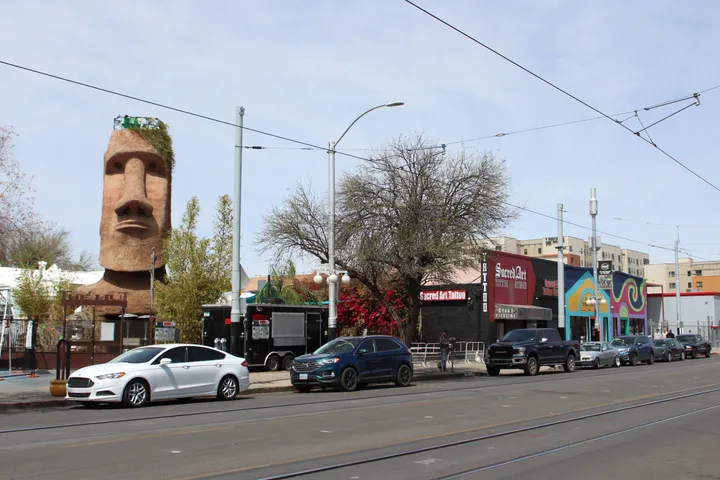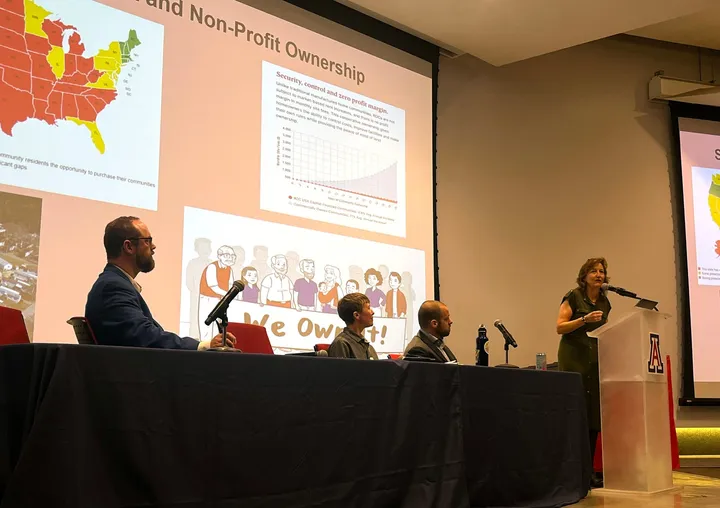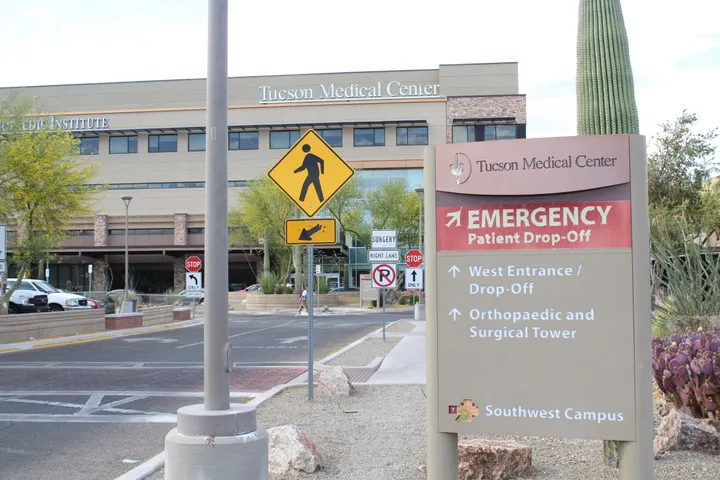Marana outcry grows over possible ICE facility
Marana residents packed a recent Town Council meeting to oppose the possible conversion of a shuttered correctional facility into an ICE detention cente.
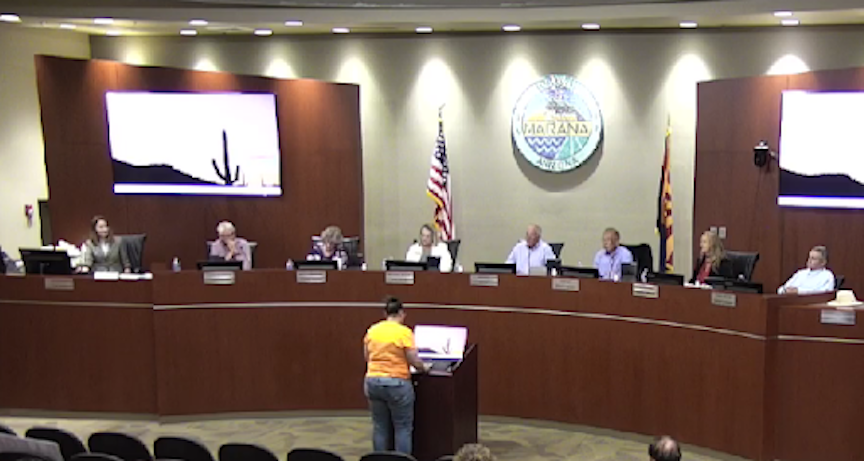
Marana residents packed last week’s Town Council meeting to protest the possibility that an empty correctional facility could be converted into an ICE detention center, voicing concerns about civil rights, community safety and the town’s ability to regulate the site.
Utah-based Management and Training Corp. bought back the shuttered Marana Community Correctional Treatment Facility from the state for $15 million in July. While no details about its planned use have been released, residents remain concerned.
Some speakers also worried that Marana police officers might work at the facility during off-duty hours, as has happened in other jurisdictions.
“Donald Trump has been using ICE raids based on racist lies as an excuse to create a militarized police state, which threatens the rights of all,” said Bennett Burke. “And it’s just that: an excuse.”
Burke said he supports immigrants and the benefits they bring, expressing frustration about federal investment in expanding Immigration and Customs Enforcement despite cuts to Medicaid and SNAP. He added that while some detained immigrants have criminal records, 70% do not. He urged humane treatment of immigrants, citing Bible passages to support his point.
“What would Jesus do? The answer is clear,” Burke said. “He stood with immigrants when he walked the earth. His life and teachings tell his true followers to stand with them now.”
Debbie Gorkowski, a retired Arizona Department of Corrections employee, recalled that the facility was used in the early 1990s to have inmates work to generate revenue because the department was “broke.” She said she ran the women’s visitation program on her days off — something she now regrets.
Gorkowski said she doesn’t believe the town can stop the federal government from reopening the center, but she urged the council to exercise oversight over what happens inside. Without proper monitoring, she warned, ICE could double or triple the number of bunks to house more detainees and exceed the facility’s original capacity.
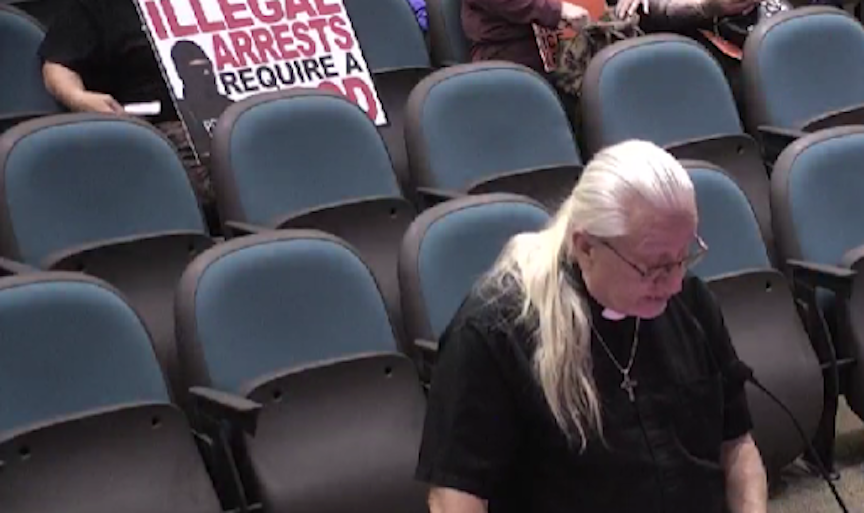
Resident John Curry told the council he moved his family to Marana because of the town’s safety and did not believe ICE activity would make them any safer.
“I’m sure a lot of us are familiar with the abuses committed by ICE and the Border Patrol, as well as the horrendous conditions in their detention facilities,” Curry said. “I don’t want to see those atrocities inflicted on anybody in the community, especially our immigrant neighbors.”
Curry also noted the significant water and power the facility would require, resources he believes could be better used elsewhere in Marana.
“MTC is a private company looking to maximize profits at the expense of our community,” Curry said. “A lot of private prisons, they don’t really care who gets swept up as they’re filling up their prisons to maximize their profits.”
Retired teacher Rolande Baker urged the council to stop the facility from opening.
“What our country is doing right now is unimaginable,” Baker said. “I never would have thought that our country would do this to our own people, let alone people we love.”
Baker said MTC bought the facility for $15 million knowing it would make back “three times that amount” and that the profit would come “off the backs of human beings.”
“There were atrocities that were occurring in that prison for over two and a half years,” she said.
Marian Franco said she is fearful for her family and neighbors if the town does not oppose the facility.
“This detention facility, it makes me cry in sadness,” Franco said. “And I only want to cry in joy for our town.”
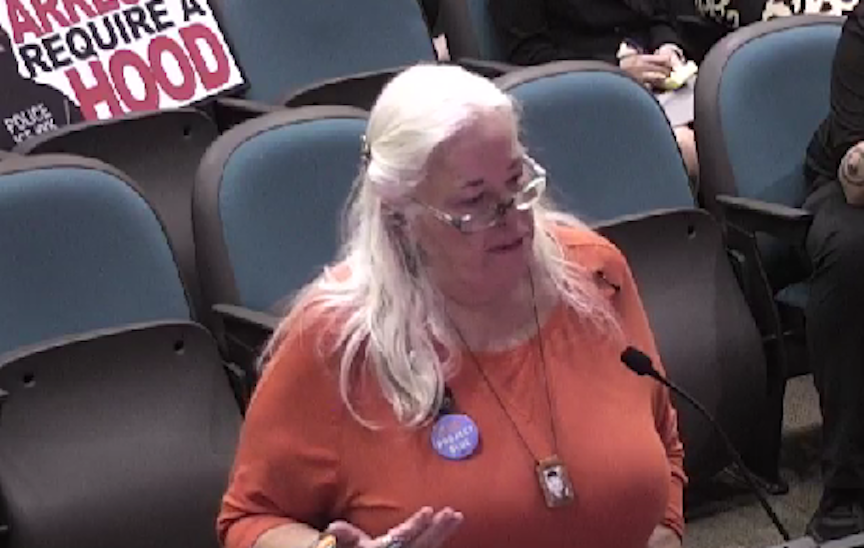
Army combat veteran Johanna Ryan recalled guarding a prisoner-of-war camp during her deployment to Iraq and later spending 10 years as a federal law enforcement officer with the Bureau of Prisons.
Ryan connected her experience to her opposition of an ICE facility, describing “horrors” she witnessed in detention: abuse, denial of rights and shortages of basic resources. She said conditions and infrastructure in such facilities are often neglected, physical health needs go unmet and mental health care is ignored.
“People tend not to be involved or care about the treatment of detainees until it is their personal interest,” Ryan said. “A detention facility in Marana is in your interest. It is definitely something you should be caring about.”
She said harm would extend beyond detainees to staff, noting that corrections workers die by suicide at rates up to 40% higher than the general population.
“If it is for jobs, this is not the answer,” Ryan said. “Jobs at detention centers themselves have issues with community members who take them on. They will face the brutal reality that will eventually break you, like me.”
The item was not on the council’s agenda, so no action was taken. It remains unclear whether the issue will return for discussion at a future meeting.
With public comment concluded, the council moved on to other matters, including adopting a notice of intent to increase water and wastewater rates over multiple years through 2030. The council said during an October meeting that increasing water rates by 10.5% annually and reclamation rates by 2.5% is necessary to maintain reliable service and fund future improvements.
The council also heard an update on the Central Arizona Project and the state’s water resources. The project serves Maricopa, Pinal and Pima counties, as well as 11 tribal nations, a region that makes up roughly 80% of Arizona’s population. It includes a 336-mile aqueduct from Lake Havasu to Tucson and an extensive network of pumps that move the water.
As of Oct. 5, five reservoirs had seen reduced capacity, including Lake Powell, which dropped by 0.26 million acre-feet since last month. Lake Mead increased by 0.18 million acre-feet due to water released from Lake Powell, but is still projected to operate under Tier 1 shortage conditions in 2026 and 2027, requiring about a 30% reduction in water deliveries.
Ian Stash is a journalism major at the University of Arizona and Tucson Spotlight intern. Contact him at istash@arizona.edu.
Tucson Spotlight is a community-based newsroom that provides paid opportunities for students and rising journalists in Southern Arizona. Please consider supporting our work with a tax-deductible donation.

